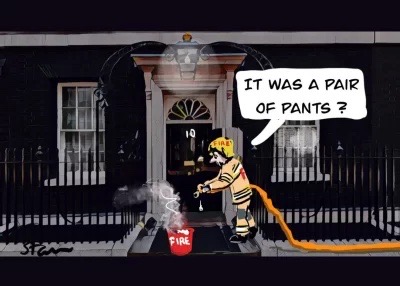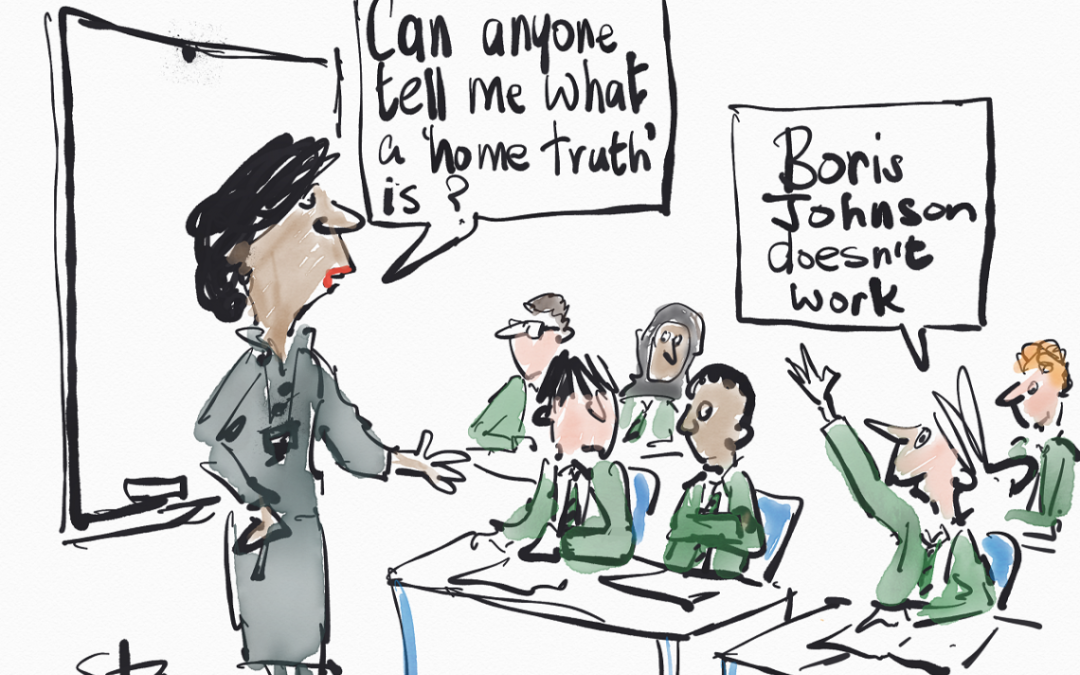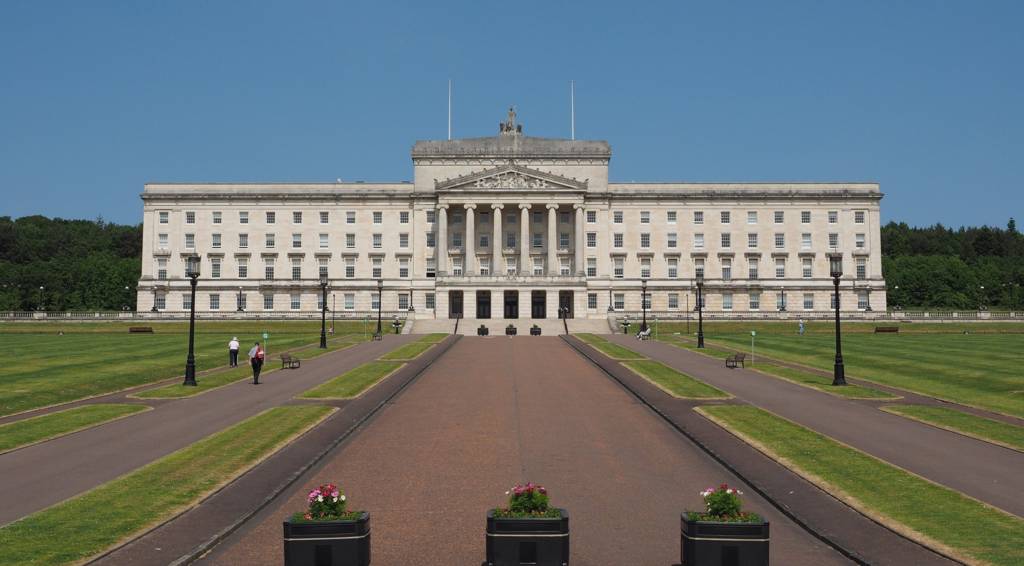
Dear Brexiters – What if this was your mother? Vanessa’s Story
One of the most under-reported and tragic consequences of Brexit has been the impact on those with deep family connections to Europe
At the 2019 Conservative party conference, Priti Patel announced, “I have a particular responsibility when it comes to taking back control. It is to end the free movement of people once and for all”. Her statement was met with rapturous applause, and Brexiters all over the country rejoiced and boasted of this perceived win.
This celebration always struck me as bizarrely nonsensical. After all, the only people losing their freedom of movement were the British – no one else. The repercussions and consequences are complex and multi-faceted, affecting trade, goods, and people.
UK nationals can no longer retire in the EU if on a basic UK state pension. The minimum income requirements for a non-lucrative visa are €27,793 a year. Young adults can no longer pop over for the experience of a summer job, and the option to ‘try before you buy’, i.e. come over for a few months, get a job and see how it goes, has now gone.
After many years of campaigning, I am delighted the Immigration Bill which will end free movement on 31st December has today passed through Parliament.
We are delivering on the will of the British people. pic.twitter.com/pUkio41nTg
— Priti Patel MP (@pritipatel) November 9, 2020
Most people in the UK understand that the United Kingdom now has third country status in the EU and that the loss of freedom of movement affects their future options for living and working in another EU country. However, little is understood about how this status change affects British nationals residing in a European Union member state. These issues are far-reaching and complex. Here is just one story.
Meet Vanessa and Margot
Vanessa lives in Byfleet, Surrey, and her mother, Margot, 86, lives in the town of Jávea, in Spain’s Costa Blanca region. Margot moved to Spain 22 years ago to retire and has, like many others, come to love her host country, which she now calls home.
On 5 May, Vanessa received a call from a close friend of her mother, informing her that Margot had a fall and was acting confused. At the time, Margot was suffering from a urinary tract infection, but Vanessa felt something more was going on, so she flew out to Spain as quickly as possible and is thankful she did.
Margot was taken to the hospital for an MRI, which showed she’d had a stroke. She was admitted to the hospital for three days and then had to return three times weekly for physiotherapy. Margot had paralysis on her left side and needed speech and language therapy.
The 90 in 180-day rule for third-country nationals
Margot needed help with cooking, cleaning and taking care of herself. Naturally, Vanessa wanted to, and, as an only child, felt she had no option but to be the one to stay and take care of her mother while she recuperated. This would not have been a problem pre-Brexit, as Vanessa could have stayed and obtained residency, but it is now.
With the UK’s third-country status, the time its citizens can spend within the European Union is subject to restrictions.
UK nationals are only allowed to spend 90 days in the whole of the Schengen zone in any 180. If you spend three months in Spain, you cannot visit anywhere else in the EU for another three months. Vanessa and Margot were about to realise the enormous implications of this.
An impossible situation
Vanessa visited her mother earlier in the year, so she had used part of her 90/180-day allowance by the time of her mother’s stroke. They knew that if Vanessa stayed past June, she would breach immigration laws. Overstaying would be committing a serious infraction that could lead to significant penalties, including being banned from entering Spain altogether, so she had to leave in July for a week and returned a week later to start the process. Little did they know, though, just how difficult it would be.
Jumping through hoops
For tourists, a visa to overstay is only given in exceptional circumstances. Suppose you had a car crash and could not leave the hospital, for example. There are family unification visas, but they are very restrictive, and you can only regroup children if they are under 18.
You must apply for the visa through Spain’s Ministry of the Interior and the National Police. It is not a simple process. Vanessa tried to make an appointment, but none were available in time, so on 20 June, she approached a lawyer.
The National Police and the lawyer were based in Alicante. Neither Margot nor Vanessa have a car, so it took three round bus trips to complete the paperwork. The first two round trips took 16 hours, and the second 12.
All documents needed to be officially translated into Spanish. The cost for Vanessa’s birth certificate to be translated, notarised and apostilled cost 300 euros. She required extra health insurance and proof of that and proof of enough funds to live on 100 euros per day. Her visa would grant her an additional 61 days. That equated to over 6,000 euros, money neither Vanessa nor her mother had, so she had to borrow money from her daughter and husband to put in her bank account and submit statements as evidence.
Eventually, after being in limbo and having an irregular immigration status for weeks and expenses of 1,000 euros, the extension was granted on 22 August.
On 8 September, Vanessa will have to leave her mother again
Although the visa was issued on 22 August, it was backdated. Otherwise, Vanessa would have been deemed overstaying when trying to obtain the visa. Vanessa has to fly back to the UK on 8th September and leave her mother alone for a minimum of three months before she can visit again. What happens if Margot has another fall or her health deteriorates? It would be illegal for Vanessa to fly and see her in Spain. The worry of this is enormous.

Margot
The effect on the family
Vanessa has a husband and twin adult daughters. Her husband has been living alone without his wife. One of the daughters is entering her third year studying Spanish and French in France. Vanessa wanted to attend her introduction week at university there. She now can’t. Vanessa had to give up her job as a private swimming instructor. All her old clients have moved on to someone else.
Some say Margot should return to the UK so her family can care for her there. Margot says, “no way”. She lives in a small apartment in a modest area, likes her neighbours and gets on well with them. She has grown to love the sense of community her Spanish town gives her.
How typical is Vanessa’s story?
While most British immigrants residing in the EU are of working age, Spain is different. It has always been a highly attractive place for the British to retire.
It is impossible to know how many people are affected, but Vanessa and Margot are certainly not the only ones.
There are 407,000 Brits who took up their right to live in Spain, and 152,000 of them are pensioners. Many families could face formidable, life-changing decisions they never thought they would have to consider, and it is all down to Brexit.















